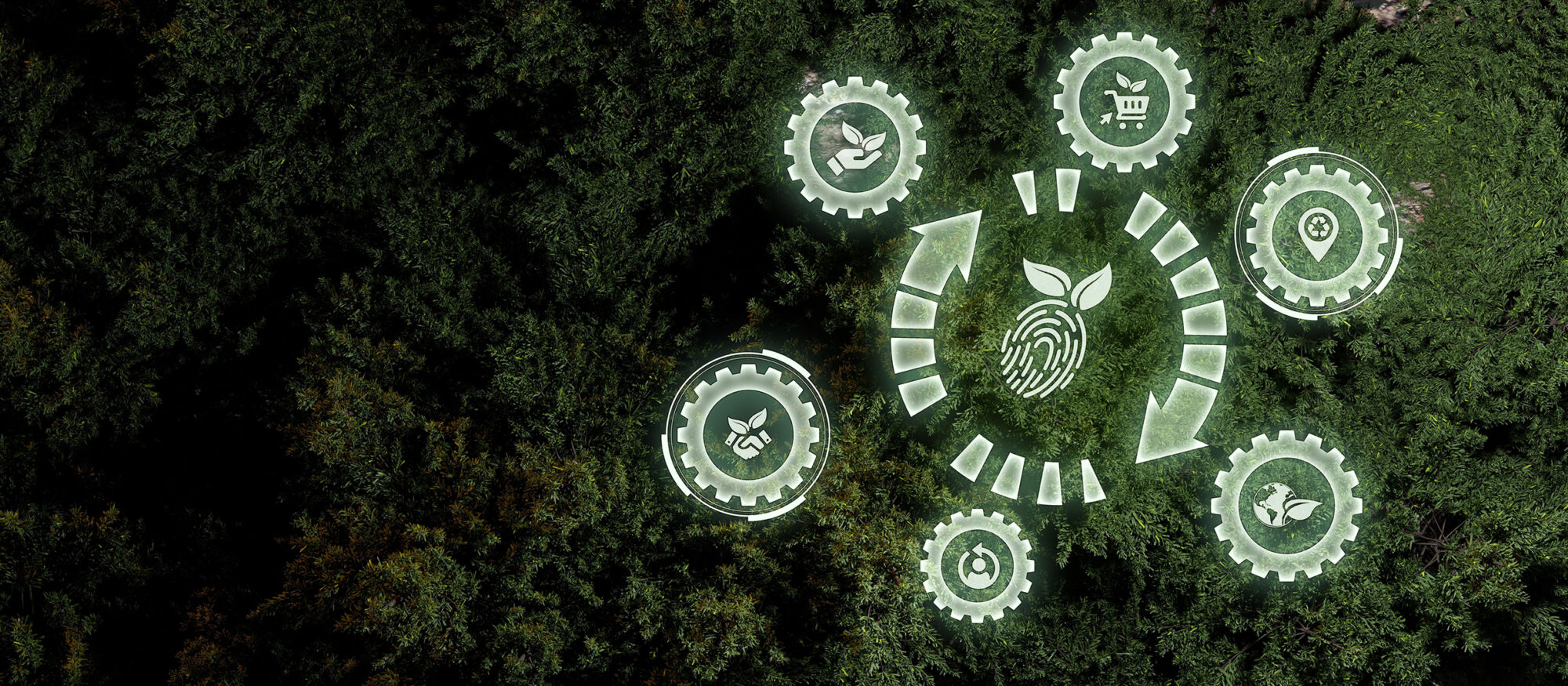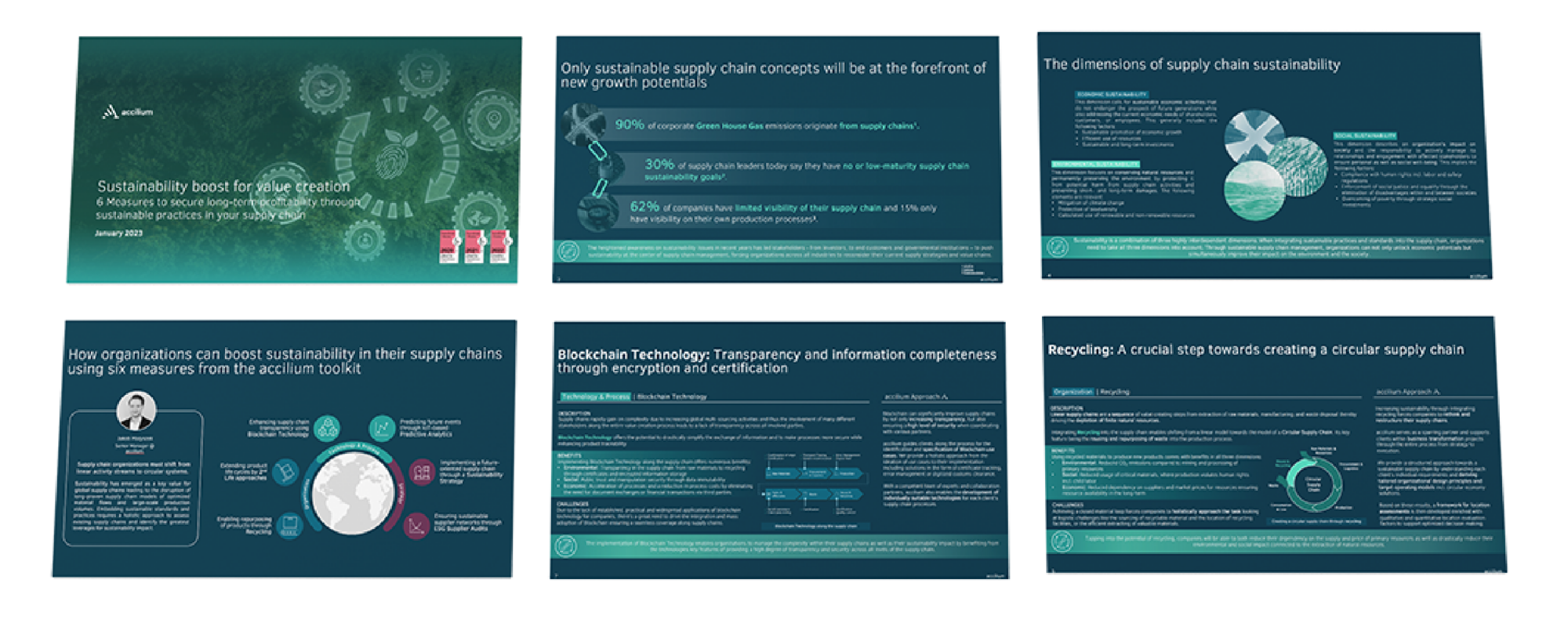6 proven sustainability measures to boost value creation along your supply chain

The growing awareness for sustainability issues among investors, end-consumers, and governmental institutions forces organisations across all industries to reconsider their current supply chain strategies.
Implementing sustainability measures therefore does not only positively impact the environment and society but also offers a variety of economic benefits.
We have summarised 6 concrete measures to secure long-term profitability through sustainable practices in your supply chain.
Download our guide “Sustainability boost for value creation” now and contact our experts for more insights.
Download the complete guide:
Six sustainability measures summarised in our guide “Sustainability boost for value creation”
Organization
Enabling repurposing of products through Recycling

Extending product life cycles by 2nd Life approaches

Technology & Process

Enhancing supply chain transparency using Blockchain Technology

Predicting future events through IoT-based
Predictive Analytics
Strategy
Implementing a future-oriented supply chain through a Sustainability Strategy

Ensuring sustainable supplier networks through ESG Supplier Audits

Learn more about the accilium toolkit for sustainability measures in supply chains:

3 dimensions of sustainability measures for your supply chain
Sustainability is a combination of three highly interdependent dimensions. When integrating sustainable practices and standards into the supply chain, organizations need to take all three dimensions into account.
Economic Sustainability

This dimension calls for sustainable economic activities that do not endanger the prospect of future generations while also addressing the current economic needs of shareholders, customers, or employees. This generally includes the following factors:
- Sustainable promotion of economic growth
- Efficient use of resources
- Sustainable and long-term investments
Social Sustainability
This dimension describes an organization’s impact on society and the responsibility to actively manage its relationships and engagement with affected stakeholders to ensure personal as well as social well-being. This implies the following factors:
- Compliance with human rights incl. labor and safety regulations
- Enforcement of social justice and equality through the elimination of disadvantages within and between societies
- Overcoming of poverty through strategic social investments

Environmental Sustainability

This dimension focuses on conserving natural resources and permanently preserving the environment by protecting it from potential harm from supply chain activities and preventing short- and long-term damages. The following elements are relevant:
- Mitigation of climate change
- Protection of biodiversity
- Calculated use of renewable and non-renewable resources
Download the complete guide on sustainability measures for your supply chain:





